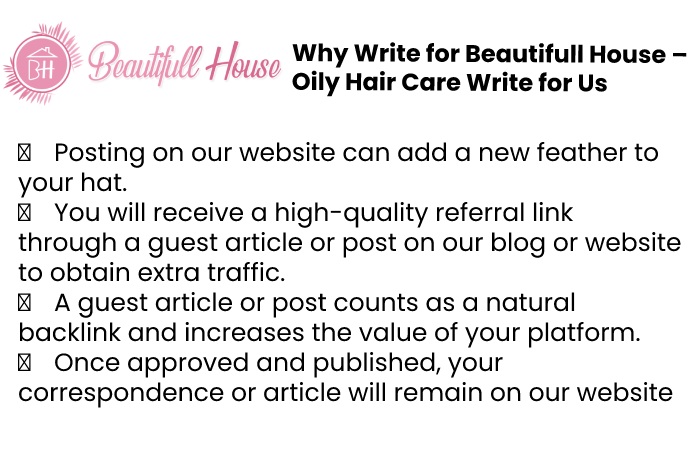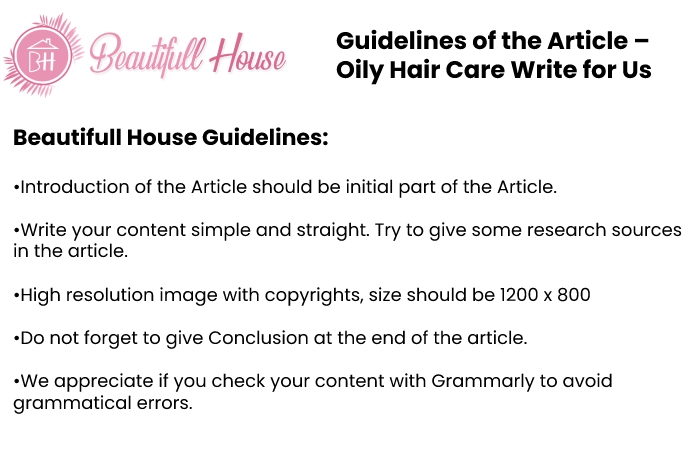What Is Oily Hair?
Oily hair is generally caused by overwashing your hair, environmental factors, and using certain hair care products. However, it can also result from post-strenuous exercise, excess heat, and humidity.
The degree of oiliness or greasiness differs in people and hair types as certain people experience more oil production in their scalp than others. While excessive oil production in the scalp may be a problem, note that this natural sebum is essential to your hair’s health as it protects and maintains your hair’s health.
To reduce the collection of oil on your scalp, extra care must take to maintain your hair’s overall health. But before care takes, it is essential to address the causes of oily hair.
What causes Oily Hair?
Oily hair can cause by an accumulation of excess sebum, a naturally occurring oil formed within your sebaceous glands near your hair follicles. Extra fat will leave your scalp and hair greasy. In addition, oily hair could cause by beauty routines or hormonal imbalances.
Oily hair is produced by the overproduction of sebum, a natural oil formed by the sebaceous glands on the scalp. Sebum is important for keeping the hair and scalp moisturized, but when excessive amounts are made, it can lead to oily hair.
Some common features that contribute to oily hair include:
- Genetics: The tendency to have oily hair can be inherited. If your parents or close family members have oily hair, you may also be more prone to it.
- Hormonal Changes: Hormonal fluctuations, for example, during puberty, pregnancy, or menopause, can increase sebum production and produce oily hair.
- Excessive Sebaceous Gland Activity: Some individuals naturally have more active sebaceous glands, increasing scalp oil production.
- Overwashing or Underwashing: Washing your hair too frequently or using harsh shampoos can strip away natural oils, causing the scalp to produce more oil to compensate. Conversely, not washing your hair often enough can allow grease and dirt to accumulate, making the hair appear greasy.
- Product Buildup: Excessive styling products, such as gels, mousses, or serums, can contribute to oily hair. These products might build up on the scalp and hair, trapping oil and creating a greasy appearance.
- Environmental Factors: Humid weather or pollution can increase oiliness by stimulating the sebaceous glands.
- Overbrushing: Brushing your hair too frequently or vigorously can stimulate the scalp and distribute the oil from the roots to the lengths, making the hair look greasy.
- Diet: While there is limited scientific evidence linking diet directly to oily hair, some studies suggest that a high intake of fatty or greasy foods may increase sebum production.
- Stress: Chronic stress can disrupt hormonal balance, potentially increasing oil production.
Managing oily hair often involves finding a balance in hair care practices.
It may be helpful to:
- Use a gentle, clarifying shampoo designed for oily hair.
- Wash your hair regularly, but avoid overwashing.
- Avoid heavy or greasy hair care products.
- Use dry shampoo between washes to absorb excess oil.
- Avoid touching your hair too frequently, as it can transfer oils from your hands to your hair.
- Consider hairstyles that keep your hair away from your face and scalp, reducing contact with oils.
- Maintaining a healthy lifestyle includes a balanced diet, regular exercise, and stress management.
If you are concerned about persistent oily hair or if it is accompanied by other scalp issues like itching, redness, or hair loss, it’s advisable to consult a dermatologist or a healthcare professional for further evaluation and guidance.
How to take care of your Oily Hair?
Here’s how to cut the grease without damaging your hair or irritating your scalp.
- Wash more often.
- Wash less often.
- Shampoo properly.
- Condition carefully.
- Go natural.
- Use products formulated for oily hair.
- Clean your brush.
- Use products formulated for oily hair.
- Avoid products with silicone.
- Deep clean with aloe.
- Rinse properly.
- Try dry shampoo.
Oily hair can be the ingredient of a bad day. The main news is that there are plenty of home remedies to help you get it under control. It’s also important to note that the amount of oil you produce changes over time and generally goes down as you age. So the excessively greasy locks of your youth won’t haunt you forever, promise.
How to Update Your Articles?
To Write to Us, you can mail us at contact@beautifullhouse.com
Why Write for Us – Oily Hair Care Write for Us
 Search Terms Related to Oily Hair Care Write for Us
Search Terms Related to Oily Hair Care Write for Us
Sebaceous Glands
Hair Conditioners
Shampooing
Hair Dressing
Acne
Terminal
Vellus Hair
Hair Growth
Hair Care
Biomaterial
Protein
Alpha-Keratin
Hairstyles
Hair Removal
Hair Follicle
oily hair shampoo
oily hair treatment
home remedies for oily hair
how to get rid of oily hair fast
oily hair men
is oily hair good
dry shampoo for oily hair
signs of oily scalp
Search Terms for Oily Hair Care Write for us
Submit an article
Guest posting guidelines
Become a guest blogger
Become an author
Submit post
Guest posts wanted
Suggest a post
Guest post
Write for us
Looking for guest posts
Guest posts wanted
Contributor Guidelines
Contributing writer
Writers Wanted
Guidelines of the Article – Oily Hair Care Write for Us
 You can send your article to contact@beautifullhouse.com
You can send your article to contact@beautifullhouse.com
